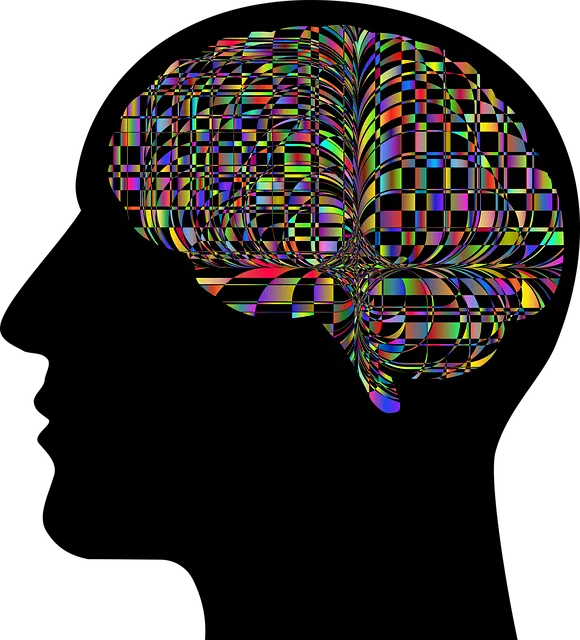In today's urban setting, the Centennial Kaiser Permanente Mental Health Access Center addresses the growing concern of mental wellness. Stress, demanding careers, and complex lives contribute to anxiety and depression, prompting the development of Mental Wellness Coaching Programs. These programs offer accessible solutions with Mindfulness Meditation techniques, empowering individuals to manage stress, improve emotional well-being, and enhance resilience. Drawing from the center's successful integration of comprehensive mental health support, coaches can design tailored sessions for specific needs. Technological advancements, such as online sessions and mobile apps, have made these programs more accessible and engaging. Regular assessments and data-driven approaches ensure continuous improvement, benefiting both coaches and clients.
Mental wellness coaching programs are gaining prominence as essential tools for promoting holistic well-being. This article explores the development and impact of such programs, highlighting the crucial role played by institutions like the Centennial Kaiser Permanente Mental Health Access Center. We delve into strategic design, technology integration, and measurement techniques to enhance access and improve mental health outcomes. By understanding these components, we can revolutionize mental wellness coaching, making it accessible to a broader population.
- Understanding the Need for Mental Wellness Coaching Programs
- The Role of Centennial Kaiser Permanente Mental Health Access Center
- Designing Effective Coaching Curricula and Strategies
- Implementing Technology to Enhance Access and Engagement
- Measuring Success and Continuous Improvement in Mental Wellness Coaching
Understanding the Need for Mental Wellness Coaching Programs

In today’s fast-paced world, mental wellness has become an increasingly pressing concern for individuals across various demographics. This is particularly evident in urban centers like the Centennial Kaiser Permanente Mental Health Access Center, where high stress levels, demanding careers, and complex personal lives contribute to elevated anxiety, depression, and other mental health challenges. As such, there’s a growing recognition of the need for accessible and effective solutions, which is driving the development of Mental Wellness Coaching Programs. These programs aim to empower individuals with the tools and strategies necessary to manage stress, improve emotional well-being, and enhance overall resilience.
The integration of Mindfulness Meditation techniques within these coaching programs has shown promise in preventing and mitigating depression. By fostering a sense of calm and promoting self-awareness, mindfulness meditation can help individuals develop healthier coping mechanisms. This is especially relevant for those seeking to avoid the often-cumulatively detrimental effects of chronic stress and mental health issues, which can significantly impact their quality of life. The Centennial Kaiser Permanente Mental Health Access Center serves as a testament to this growing need, highlighting the importance of innovative approaches like Mental Wellness Coaching Programs Development in ensuring better mental health outcomes for individuals and communities.
The Role of Centennial Kaiser Permanente Mental Health Access Center

The Centennial Kaiser Permanente Mental Health Access Center plays a pivotal role in fostering mental wellness within the community. As a leading healthcare provider, this center offers comprehensive services tailored to address various mental health concerns. Through its dedicated team of professionals, it provides not only crisis intervention guidance but also specialized support for individuals seeking long-term recovery and improved well-being.
Centennial Kaiser Permanente’s commitment extends beyond treatment; they emphasize prevention and education. By organizing workshops and training sessions, the center equips mental health professionals with essential tools, including risk assessment techniques and empathy-building strategies. This proactive approach ensures that those in need receive timely assistance while empowering professionals to make a lasting impact on their clients’ lives.
Designing Effective Coaching Curricula and Strategies

Developing effective coaching curricula for mental wellness programs requires a strategic approach, especially when drawing inspiration from renowned centers like the Centennial Kaiser Permanente Mental Health Access Center. These centers often serve as models for integrating comprehensive mental health support into community settings. By emulating their successful strategies, coaches can design engaging and impactful sessions. One key aspect is tailoring the curriculum to address specific needs; this might involve modules on stress management, cultivating positive thinking, or coping mechanisms tailored to unique challenges faced by participants.
Incorporating interactive elements, such as group discussions, role-playing scenarios, and personalized action planning, enhances learning outcomes. Coaches should encourage self-reflection and provide tools for ongoing mental wellness maintenance. Regular assessments and feedback sessions ensure the curriculum remains relevant and effective, allowing for adjustments to meet the evolving needs of individuals navigating their mental health journeys.
Implementing Technology to Enhance Access and Engagement

The integration of technology has revolutionized the landscape of mental wellness coaching programs, particularly at centers like the Centennial Kaiser Permanente Mental Health Access Center. By leveraging digital tools and platforms, these programs can now enhance access to care for a wider population, transcending geographical barriers that traditionally limit services. Online sessions, mobile apps, and virtual reality experiences not only improve accessibility but also foster engaging and interactive learning environments. This shift enables coaches to deliver personalized support and mental health education programs design tailored to individual needs, ensuring that participants feel empowered and motivated.
Furthermore, technology facilitates continuous engagement through automated reminders, progress tracking, and gamified elements that bolster participation. Features like live chat and tele-coaching sessions ensure that individuals can access support whenever needed, promoting proactive inner strength development. Such innovative approaches not only cater to the growing demand for mental health services but also make coaching more inclusive and effective, aligning with the goals of forward-thinking institutions such as Kaiser Permanente.
Measuring Success and Continuous Improvement in Mental Wellness Coaching

Measuring success and driving continuous improvement are paramount aspects of any effective Mental Wellness Coaching program. At the Centennial Kaiser Permanente mental health access center, for instance, progress is meticulously tracked through regular assessments tailored to each client’s unique needs. These evaluations not only gauge improvements in symptoms but also assess clients’ overall well-being, including their ability to manage stress, cope with traumatic experiences, and enhance self-esteem.
By integrating these metrics into the coaching process, the center ensures that interventions are targeted, adaptive, and grounded in evidence. This data-driven approach allows for continuous refinement of strategies and techniques, fostering a dynamic environment where both coaches and clients can grow. It enables them to adapt their approaches based on measurable outcomes, ultimately enhancing the program’s effectiveness and accessibility for those seeking mental health support, such as those availing of Kaiser Permanente’s services.
The development of mental wellness coaching programs, as demonstrated by the initiatives at the Centennial Kaiser Permanente Mental Health Access Center, is a promising approach to enhancing mental health support. By combining comprehensive curricula, innovative technology integration, and focused measurement strategies, these programs can effectively reach and engage individuals seeking better mental well-being. The success of such initiatives underscores the value of coaching as a viable tool within the broader mental health landscape.






